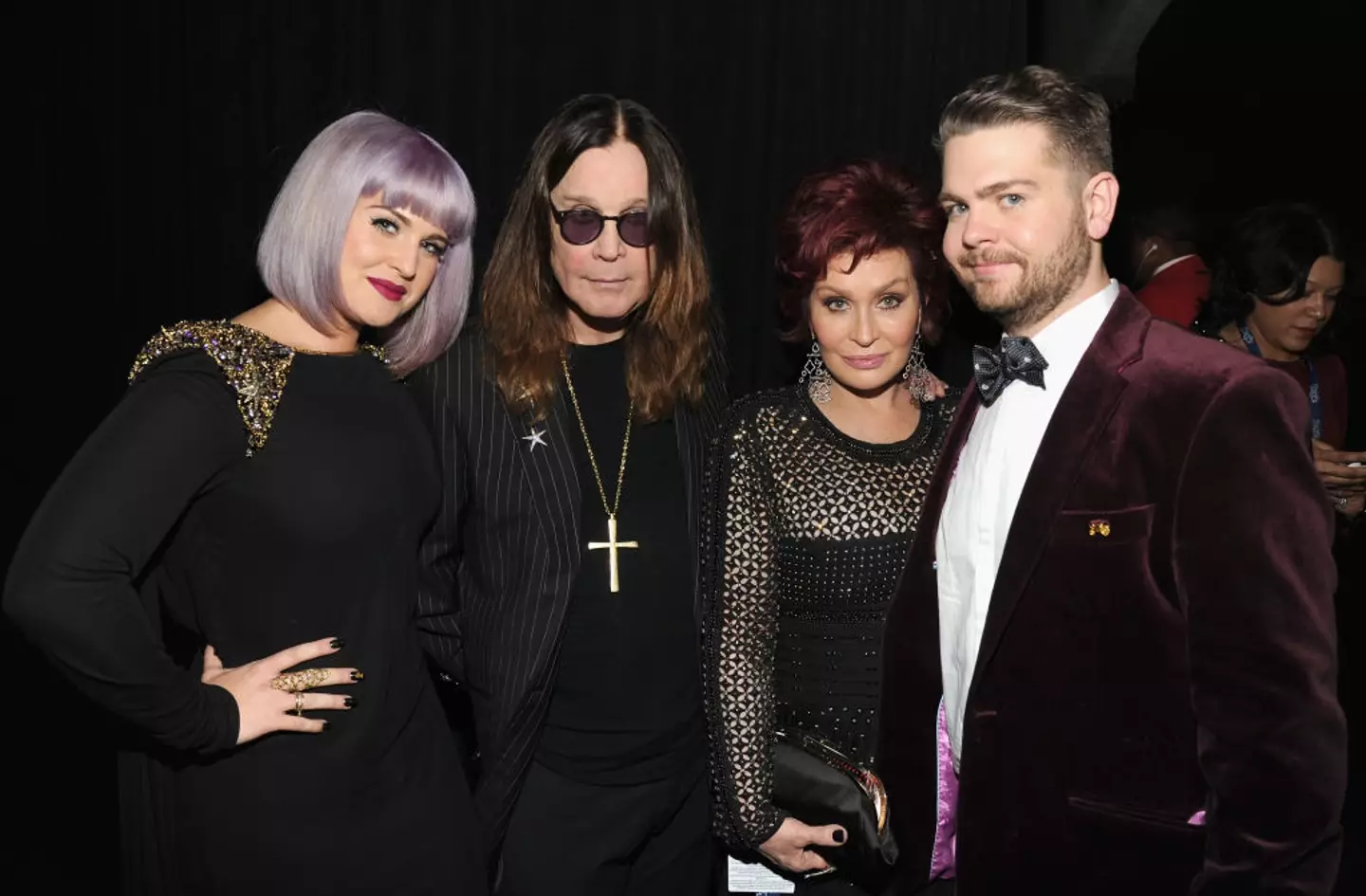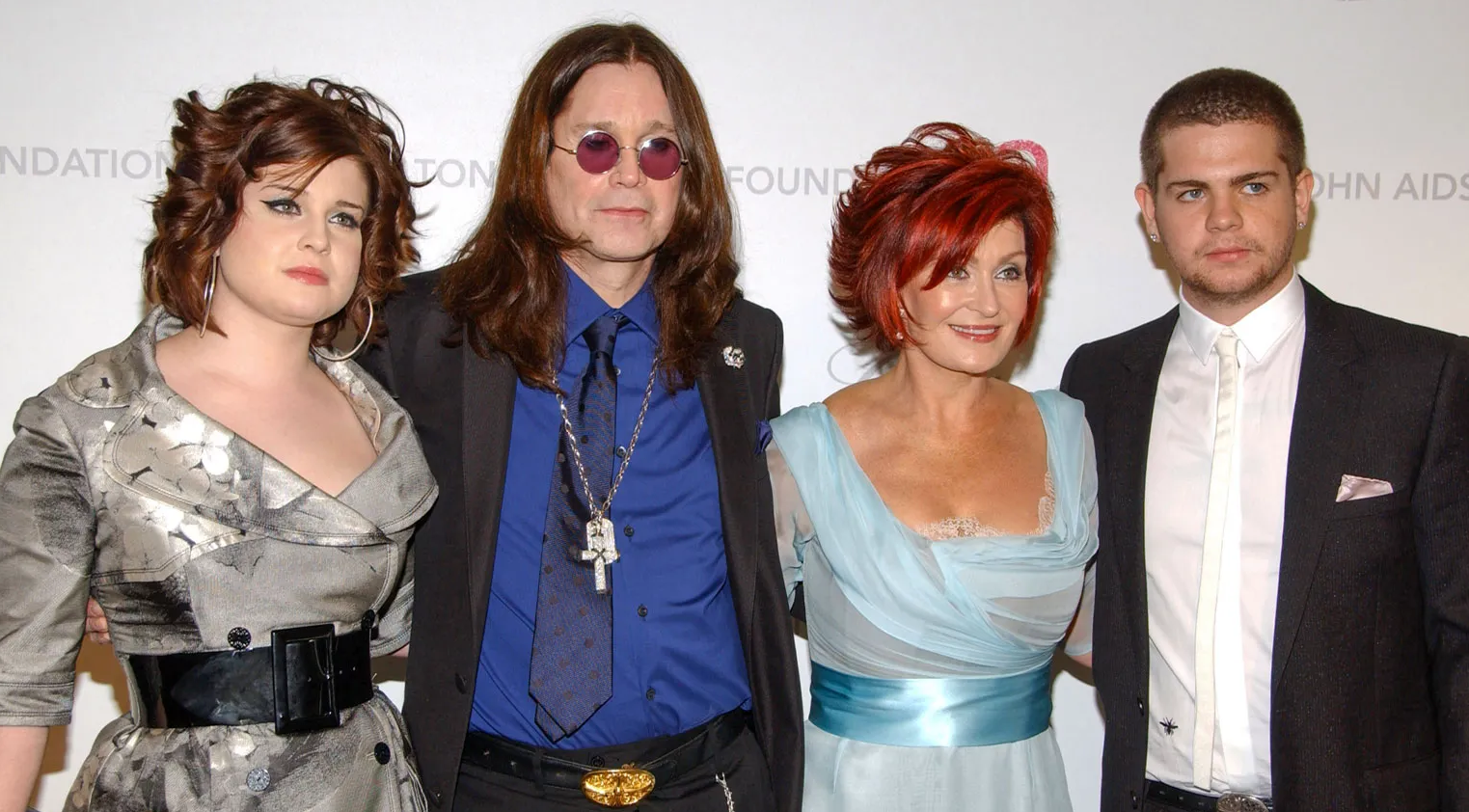What he wanted, how he wanted to be remembered, and the moving tributes left behind
There are few names in the world of music that carry the same weight as his. A legend not just in rock, but in the wider cultural zeitgeist, his life was filled with fame, controversy, humor, hardship—and a surprising tenderness. When the final curtain fell, the world paused. But long before that moment arrived, he had already thought deeply about how he wanted it all to end. Not with tears, not with mourning—he envisioned something entirely different. Something only he could have imagined.
Earlier this week, Ozzy Osbourne, the Prince of Darkness himself, passed away at the age of 76. His family, heartbroken but composed, issued a statement that reflected both grief and the immense love surrounding him at the time of his passing:
“It is with more sadness than mere words can convey that we have to report that our beloved Ozzy Osbourne has passed away this morning. He was with his family and surrounded by love. We ask everyone to respect our family’s privacy at this time.”
The statement, while brief, ignited an outpouring of global tributes from fellow musicians, celebrities, and lifelong fans who had followed his journey from the streets of Birmingham to the heights of global superstardom.
The Private Pain Behind the Public Persona
Ozzy’s later years were shadowed by his 2019 diagnosis with Parkinson’s disease, a progressive neurological disorder that slowly takes hold of the brain. Despite this, he remained active in the public eye—giving interviews, participating in family projects, and even performing when he could muster the strength. His trademark wit never wavered, and neither did his refusal to let the illness define him.
What many didn’t know was that even as he fought to stay present, Ozzy had quietly been preparing for the day when he would no longer be around. Not in a morbid sense, but with the same irreverent humor and depth that defined his decades-long career.
A Funeral That Wouldn’t Follow the Rules
Ozzy didn’t want a conventional send-off. In fact, in an old interview from 2011, he made it very clear that the idea of a traditional, somber funeral didn’t sit well with him at all.
“There’ll be no harping on the bad times,” he wrote in a column for The Times when asked by a fan how he envisioned his own funeral. “It’s worth remembering that a lot of people see nothing but misery their whole lives, so by any measure, most of us in this country – especially rock stars like me – are very lucky. That’s why I don’t want my funeral to be sad, I want it to be a time to say ‘Thanks’.”
This sentiment—that life, even with its ups and downs, should ultimately be celebrated—formed the core of how Ozzy wanted to be remembered. A time for gratitude, laughter, and reflection rather than sorrow and silence.
He even joked about the music he wanted to be played. At one point, he claimed it didn’t matter to him if it was a mix of Justin Bieber, Susan Boyle, or even the comedic group The Diddymen.
“I honestly don’t care what they play at my funeral; they can put on a medley of Justin Bieber, Susan Boyle, and We Are the Diddymen if it makes ’em happy.”
But later, in a more reflective interview with NME, Ozzy admitted that if he had to pick something, it would likely be from one of the bands that shaped him early on: The Beatles.

The family shared a heartfelt statement (Kevin Mazur/WireImage)
The Song That Meant Everything
Out of all the music that defined him—from Black Sabbath’s dark, sludgy riffs to his solo work that pushed metal into the mainstream—Ozzy chose something unexpected as his farewell soundtrack.
“Probably something from Sgt. Pepper’s Lonely Hearts Club Band or Revolver,” he said. “Maybe A Day in the Life by The Beatles.”
For a man known for pushing boundaries and challenging norms, it made sense that his final musical request would be thoughtful and poetic, not what the public might expect. The song, which explores the fragmentation of reality and the absurdity of daily life, resonated with Ozzy’s complex persona—a mix of chaos, genius, vulnerability, and dark humor.
“I definitely don’t want my fking greatest hits album,” he added bluntly. “I never ever play that thing, I’m fking embarrassed about it. And I definitely don’t want a f**king happy song—I’m dead.”
A Life That Came Full Circle
In the final chapter of his life, Ozzy returned to where it all began: Birmingham, England. With the help of his wife, Sharon Osbourne, he took part in a benefit concert called Back to the Beginning, which raised an astonishing $189 million for various charities. The event was more than a show—it was a homecoming, a statement of purpose, and a final bow to the city that raised him.
Sharon, who stood by him through addiction, illness, and the whirlwind of fame, was instrumental in organizing the event.
“The only place that we could do it would have been Aston, because that’s where Ozzy was born and grew up, which is right where the Villa ground is,” she said in an interview with Music Business Worldwide.
The idea was to invite bands that had played a role in Ozzy’s journey—from Sabbath to his solo backing musicians—to take part in a musical tribute to the man whose voice and vision shaped generations.
“All the generations are going to be there that Sabbath and Ozzy have passed the torch down to,” Sharon added. “It became a celebration of the music.”
Ozzy, visibly moved during the event, told fans:
“You’ve no idea how I feel—thank you from the bottom of my heart.”
The Family He Left Behind
Ozzy leaves behind a large and devoted family. His wife Sharon, often considered his anchor and fiercest protector, was his partner in both life and business. Together, they had three children: Aimee, Kelly, and Jack. From his first marriage to Thelma Riley, he had two more children: Jessica and Louis. He also leaves behind several grandchildren who knew him not as a global icon, but simply as “Grandad.”
Throughout the years, the Osbourne family has been a tightly knit unit. Their fame reached new heights in the early 2000s with the reality TV series The Osbournes, giving fans an intimate, often chaotic, and hilarious look into their private lives. But beyond the cameras, theirs was a bond forged through real battles—addiction, illness, fame, and controversy.
Even as his health declined, Ozzy remained a central figure in their lives. His resilience inspired not just his family, but millions of fans around the world.
A Cultural Legacy That Can’t Be Measured
Ozzy Osbourne’s legacy goes far beyond his music. He was a cultural icon—a symbol of rebellion, resilience, and reinvention. From biting the head off a bat on stage (an incident he later regretted) to becoming a beloved reality TV dad, his life defied expectation at every turn.
He helped shape heavy metal into what it is today. With Black Sabbath, he laid the groundwork for the genre. As a solo artist, he broadened its reach and showed that even the darkest, heaviest sounds could carry deep emotion and introspection.
Despite the controversies and personal struggles, Ozzy always found a way to bounce back, often with a self-deprecating joke and a lopsided grin.
The Final Goodbye
As plans for his funeral are carried out, the world waits to see how closely the event aligns with the vision Ozzy laid out in his writings and interviews. Will fans hear Beatles classics echo through cathedral halls? Will the tone be one of somber tribute, or joyful remembrance?
If one thing is certain, it’s this: Ozzy Osbourne didn’t live life by the book, and he certainly wouldn’t want to be remembered by one. His funeral, like his life, will likely be a spectacle—a carefully crafted chaos. Equal parts heartache and humor. And as fans, friends, and family gather to say goodbye, they’ll do so knowing that the man they loved wouldn’t want them to cry—but to celebrate.
A Voice That Lives On
Even in death, Ozzy’s voice won’t be silenced. His music will continue to roar through speakers, echo through generations, and comfort those who found solace in the darkness he brought to light.
And in the quiet moments, when the guitars fade and the lights dim, fans around the world will remember the man who made it okay to be a little weird, a little broken, and still shine.
“I’m not afraid of dying,” Ozzy once said. “I’m afraid of not living fully.”
He didn’t have to worry. He lived louder, harder, and with more heart than most of us could ever imagine.

